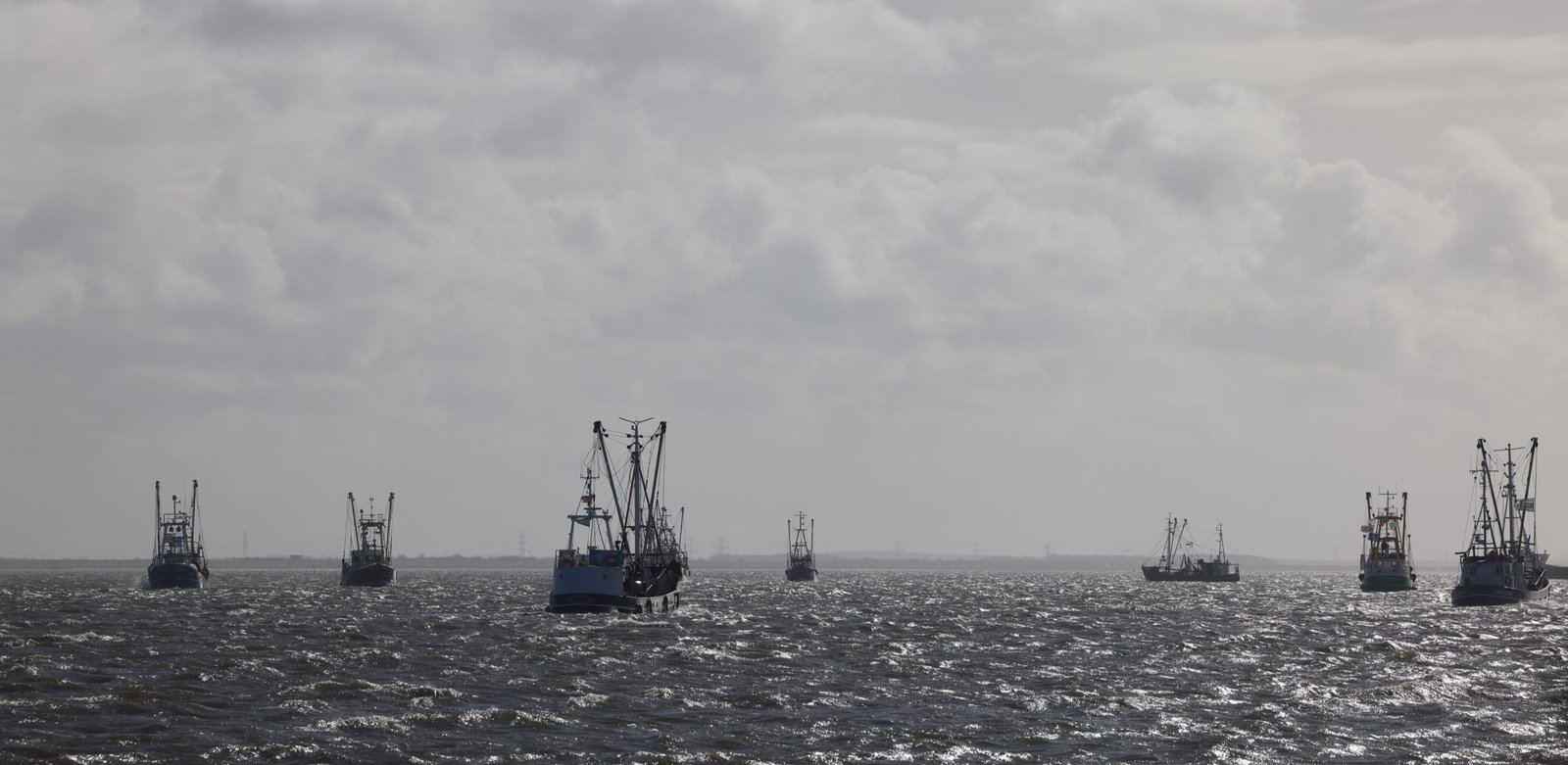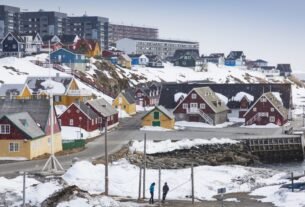The German government is hoping to buy out North Sea shrimp fishermen to make way for offshore wind turbines, but far-right politicians say culturally significant practices are being lost along the way.
German shrimp fisheries, operating at scale since the late 1800s, are on the decline. Their paltry 7,500 tonnes North Sea prawn catch of 2023 brought in just €40 million, a far cry from the industry’s post–WW II heyday with catches of more than 40,000 tonnes.
The industry, which had its humble beginnings in horse-drawn nets along the shallows of the North Sea (a practice done to this day for Belgian tourists) looks to be out of time, overshadowed by towering offshore wind turbines and the money they bring – TotalEnergies offered €5.5 billion to be allowed to build two wind parks in 2023.
Offshore wind needs space at sea. So, in 2024, the German government offered crab fishers €20 million to retire and scrap their ships.
But local far-right politicians are outraged at what they say is a scheme to remove a part of regional culture, driven by Brussels.
“The European Commission is pushing for fleet reduction and ‘climate adaptation’ in fisheries,” far-right Alternative for Germany MP Dario Seifert, told Euractiv.
“Berlin is following this line and financing decommissioning programmes for crab and flatfish fishermen without taking into account the social and cultural value of fishing,” he added. Another far-right MP, Stephen Protschka, said the plan was “frightening”.
The government scheme would see about a third of fishers head into early retirement, and comes amid a 2023 EU proposal to ban bottom trawling in nature protection sites off the North Sea coast – right where crabs are being fished for.
Local fights between environmental NGOs and fishermen have been going for decades, with neither side willing to give in. In May, the EU’s General Court dismissed a lawsuit from a German fishing association challenging the bans, affirming their legality.
Wind encroaching
Amidst this looming ban on trawling, wind has made steady gains in the fight for Germany’s crowded territorial waters. (The large, powerhouse country can lay claim to just one-twentieth of the North Sea.)
Crab fishers’ colleagues, who hunt langoustes – also known as Norway lobster or “Kaisergranaten” to German bureaucrats – further out, are already feeling the pinch.
The new 2025 maritime plan, put together by Hamburg-based cartographers, slices a third off an area initially reserved for langouste fishers.
“Although fishing for Kaisergranaten in the […] reserve area is of particular importance, the interests of wind energy prevail here, as these are in the overriding public interest and serve the public,” they explain.
Crab fishers – who for now are only being asked to retire voluntarily – fear a similar fate.
Amid declining catches and ecosystem challenges, the €20 million buy-out programme was motivated by “competition for space from offshore wind energy”, the German government said.
Generous government buy-outs are a blessing for aged fishermen whose wealth is tied up in ships nobody wants to buy.
But those who wish to stay on are fearful, as infrastructure maintenance costs will be spread out across fewer ships. “Below a certain minimum catch volume, costs per member will rise sharply as fixed costs fall on fewer businesses,” said the association of German shrimp fishermen EZDK.
Berlin’s legal framework comes from the European Maritime, Fisheries and Aquaculture Fund (EMFAF), which sets EU-wide rules for fleet-reduction and compensation schemes.
A draft regulation on the buy-out scheme has already been agreed with federal states and industry groups. If approved by the European Commission, it could still take effect in 2025.
(adm, vc)





